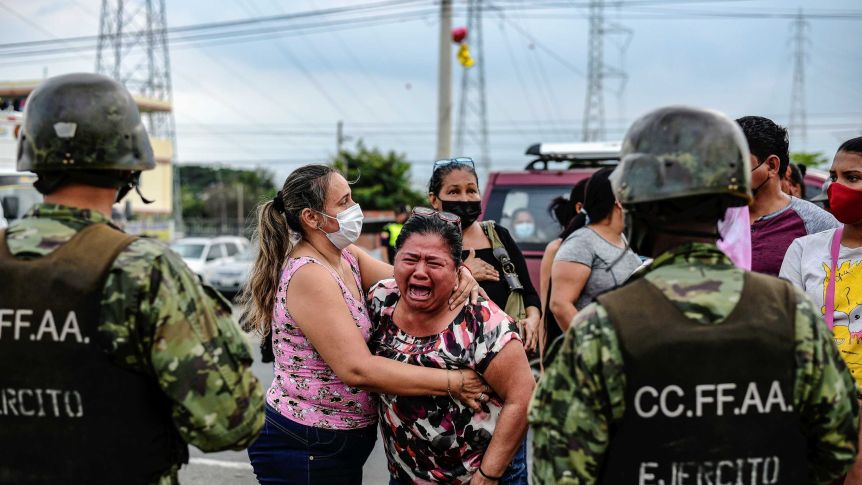
Ecuador experienced its deadliest prison riots ever this week when seemingly coordinated fights broke out in facilities in three different cities, leaving 79 inmates dead as of Wednesday and exposing the limited control that authorities have over people behind bars.
Hundreds of police officers and military personnel converged on the prisons after the unrest began Monday night in the maximum-security wings as rival gangs fought for leadership. Officials said inmates carried out savage killings, beheading and dismembering fellow prisoners.
Inmates in two prisons continued fighting Wednesday despite heavy police response. Television footage showed smoke billowing from one of the facilities.
70% of the country’s prison population lives in the centers where the unrest occurred. The national agency responsible for the prisons said 37 inmates died in the Pacific coast city of Guayaquil, 34 in the southern city of Cuenca and eight in the central city of Latacunga.
Ecuadorian prisons are overpopulated, as they always have been, as are prisons in nearly every country, said Mark Ungar, a professor of political science at Brooklyn College in the US, who has researched prisons in Latin America.
In addition is this amazingly repetitive practice of putting members of different gangs within the same facility, which is kind of cardinal rule No. 1 not to do because their practices continue within the prisons, he added.
They are disputes between national gangs that seek to monopolize the power that was left vacant in the prisons by the death of a criminal leader in December, and that has given way to this massacre with violence never before seen, Camacho said.
“There are prisoners beheaded, dismembered, their hearts removed. The prisoners had several hours to do what they wanted, and when the police arrived, they did not put up much resistance,” he added.
Over the past three decades, Latin American prisons have seen fires, riots, massacres and other forms of violence. Ungar said conditions have not improved because there is no political incentive to improve the facilities.




